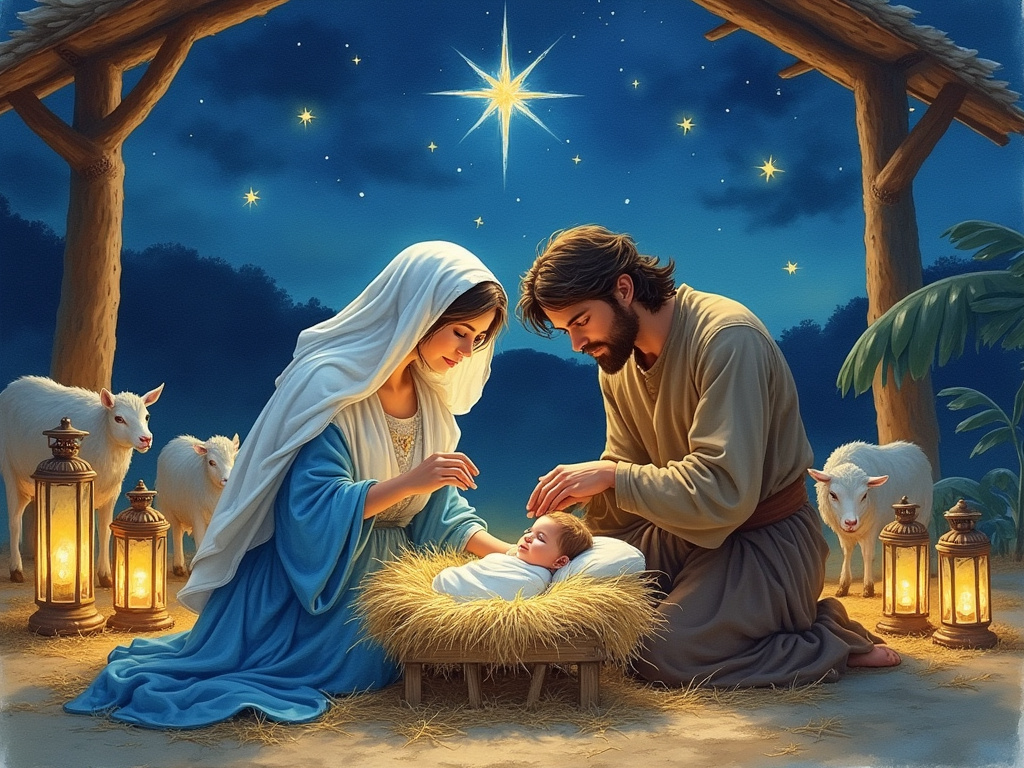Biblical Knowledge

Meditate on Our Rotating Bible Verses as they Fade In and Out ⬆️
What role did the disciples in the Bbile play, and what were their names?
What role did the disciples in the Bbile play, and what were their names?
The disciples, often called the Apostles, played significant roles in the Bible, especially in the New Testament. They were chosen by Jesus to be his closest followers and were entrusted with spreading his teachings after his resurrection. Below is a summary of the original twelve disciples and their roles: The Twelve Original Disciples:
- Simon Peter: Leader of the disciples; known for his faith and for denying Jesus before his crucifixion.
- Andrew: Peter's brother; a former disciple of John the Baptist.
- James (son of Zebedee): Among the first called; part of Jesus' inner circle.
- John: Brother of James; traditionally credited as the author of the Gospel of John and other writings.
- Philip: Brought Nathanael to Jesus from Bethsaida.
- Bartholomew (Nathanael): Praised by Jesus for his honesty.
- Matthew (Levi): A tax collector turned disciple, traditionally the author of the Gospel of Matthew.
- Thomas: Known for doubting Jesus' resurrection until he saw proof.
- James (son of Alphaeus): Referred to as "James the Less" to distinguish him from the other James.
- Thaddaeus (Lebbaeus/Judas, son of James): Not to be confused with Judas Iscariot.
- Simon the Zealot: Possibly linked to the Zealot movement or noted for his zeal in faith.
- Judas Iscariot: Betrayed Jesus for thirty pieces of silver; later took his own life.
After Judas' betrayal, Matthias was chosen to replace him among the twelve (Acts of the Apostles).Key Roles of the Disciples:
- Witnessing and Testifying: Eyewitnesses to Jesus' life, death, and resurrection, which bolstered their teachings.
- Founding the Church: Instrumental in establishing the early Christian church, especially Peter.
- Spreading the Gospel: Traveled widely, preaching and performing miracles in Jesus' name.
- Writing and Teaching: Contributed to New Testament writings, offering insights and guidance for early Christians.
Their dedication often led to persecution, and most of them were martyred, highlighting their unwavering commitment to their mission.
Who Was Joseph In the Bible, and What Did He Do?
Who Was Joseph In the Bible, and What Did He Do?
Joseph's Journey: From Favorite Son to Leader
Joseph is one of the most interesting people from the Book of Genesis. He was the eleventh son of Jacob, who was also known as Israel, and the first child of Rachel, Jacob's favorite wife. Joseph was born in a place called Haran, and he quickly became his father's favorite son. This made his older brothers very jealous.
The Special Coat
Jacob showed his special love for Joseph by giving him a colorful coat. It wasn't just any coat—it was a symbol of how much Jacob loved Joseph. Seeing Joseph wear this special coat made his brothers even more jealous.
Joseph's Dreams
Joseph also had dreams that made things worse. In these dreams, his family members were bowing down to him. When Joseph told his brothers about these dreams, they became even angrier. They hated the idea of their younger brother being in charge of them.
Sold by His Brothers
Eventually, the jealousy became too much. The brothers decided to get rid of Joseph. Instead of killing him, they sold him to some traders for twenty pieces of silver. They then tricked their father by showing him Joseph's coat, which they had stained with animal blood. Jacob believed that Joseph was dead.
Life in Egypt
Joseph was taken to Egypt and sold to a man named Potiphar, an officer of Pharaoh. Joseph worked hard and earned Potiphar's trust. But Potiphar's wife falsely accused Joseph of trying to hurt her when he wouldn't go along with her advances. Because of this lie, Joseph ended up in prison, even though he did nothing wrong.
Dream Interpreter
In prison, Joseph continued to be good and helpful. He even interpreted the dreams of two other prisoners—Pharaoh's cupbearer and baker. His predictions came true. Later, when Pharaoh had strange dreams about seven years of plenty followed by seven years of famine, the cupbearer remembered Joseph. Pharaoh called Joseph to interpret the dreams. Joseph not only explained them but also gave Pharaoh advice on how to prepare for the coming famine.
From Prison to Power
Pharaoh was so impressed that he made Joseph second-in-command
A Surprise Reunion
The famine spread to many lands, including where Joseph's family lived. His brothers traveled to Egypt to buy food, not knowing that the powerful leader they were meeting was their brother. After testing them to see if they had changed, Joseph revealed his identity. Instead of getting revenge, Joseph chose to forgive his brothers. He invited his whole family to move to Egypt, where they settled in a place called Goshen.
Joseph's Legacy
Joseph lived until he was 110 years old and saw his family grow. He helped save many lives during the famine, including his own family. Before he died, he made his family promise that they would carry his bones back to Canaan when God led them out of Egypt—and they did so during the Exodus.
--------------------------------------------------
Joseph's story shows us how difficult times can turn into something amazing. His life teaches us about being strong when things are tough, thinking ahead, and the power of forgiveness. Even in the darkest moments, Joseph trusted that God had a plan, and that plan brought hope and healing to many people.
How long did the flood last?
How long did the flood last?
According to the biblical account in Genesis, the flood lasted for 40 days and 40 nights in terms of the rainfall, but the waters prevailed upon the earth for 150 days. Here are the specifics:
- 40 days and 40 nights: This duration refers to how long it rained. (Genesis 7:12)
- 150 days: The waters flooded the earth for this period before they began to recede. (Genesis 7:24)
After the waters started to recede, it took many more months for the earth to dry out. Noah, his family, and the animals didn't leave the Ark until the earth was dry, which was about a year after the flood began:
- One year and 10 days: From the time the flood began until Noah and his family left the Ark. This is calculated from Genesis 7:11 to Genesis 8:13-14, where it's noted that they left the Ark on the 27th day of the second mon
How many of each clean animal did Noah take on the Ark?
How many of each clean animal did Noah take on the Ark?
According to the biblical account in Genesis, Noah took seven pairs (fourteen individuals) of each clean animal onto the Ark. This is specified in Genesis 7:2-3, where it says:
"You shall take with you seven each of every clean animal, a male and his female; two each of animals that are unclean, a male and his female; also seven each of birds of the air, male and female, to keep the species alive on the face of all the earth."
So, to answer your question directly, Noah took seven pairs (or 14 individuals) of each clean animal.
Understanding the Parable of the Talents: A Lesson on Using God's Gifts
Understanding the Parable of the Talents: A Lesson on Using God's Gifts
In Matthew 25:14–30, Jesus shares the Parable of the Talents, a story that has important lessons for all of us. In the parable, a man goes on a journey and entrusts his three servants with talents—units of money. To one servant, he gives five talents, to another, two, and to the last, one talent. When the man returns, he finds that the first two servants invested their talents and doubled what they were given. However, the third servant buried his talent and returned only what he had originally been given. As a result, the master praised the first two servants but banished the third servant for his inaction.
So, why was the servant who buried his talent treated so harshly?
The key to understanding this parable lies in how we use what God gives us. The talents in the story represent more than money—they symbolize the gifts, abilities, opportunities, and resources that God gives to each of us. God expects us to make use of these gifts, to grow them, and to benefit others. The two servants who invested their talents represent those who take action, trust God, and work with what they have been given.
On the other hand, the servant who buried his talent represents fear, laziness, or a lack of trust. By doing nothing with what he was given, he failed to fulfill his responsibility as a steward of God’s gifts. The lesson is clear: God gives each of us unique gifts, and He calls us to use them wisely, not hide or neglect them.
This parable encourages us to take the talents, skills, and opportunities God provides and put them to good use. When we do, we honor God and contribute to His kingdom. When we don’t, we risk wasting the potential He has entrusted to us.
What About Halloween?
What About Halloween?
In the Book of Deuteronomy 18: 10-14, the Bible warns the Israelites not to practice witchcraft, divination, etc., and condemns such things as abominations. These verses warn us away from practices such as divination, astrology, witchcraft, wizards, ghosts, and witches. Engaging in Halloween may lead individuals to do things contrary to the messages of these holy scriptures.
Christians are encouraged to celebrate the holiday in ways that honor God and reflect their faith rather than in supernatural elements. Believers can follow the guidelines of Deuteronomy by abstaining from Halloween. Many of us experienced Halloween dressing up and going door to door for treats as a child. Let us honor God based on what we know and believe today, according to the principles of His Word, the Bible, and seek to live in accordance with it.







